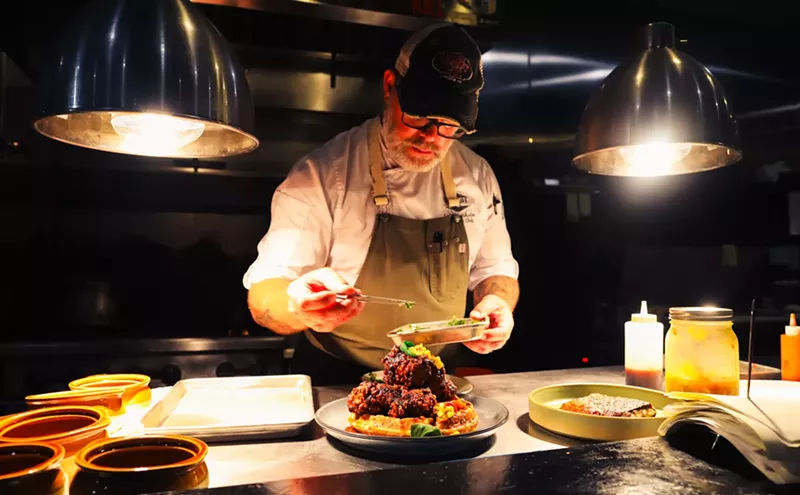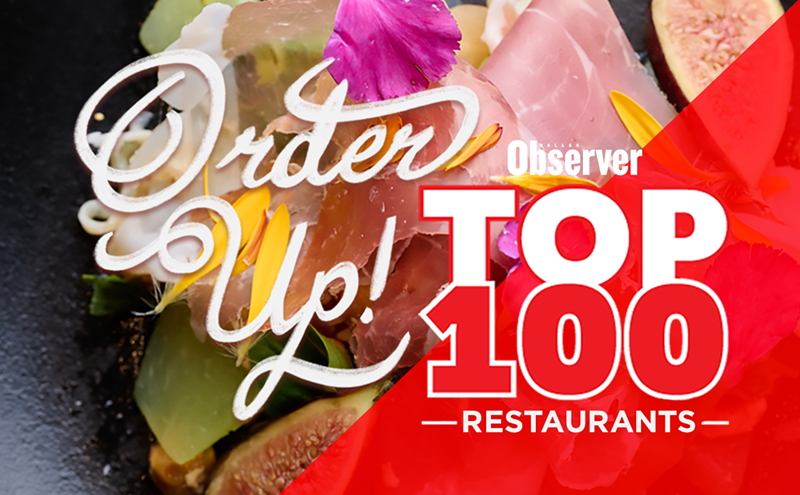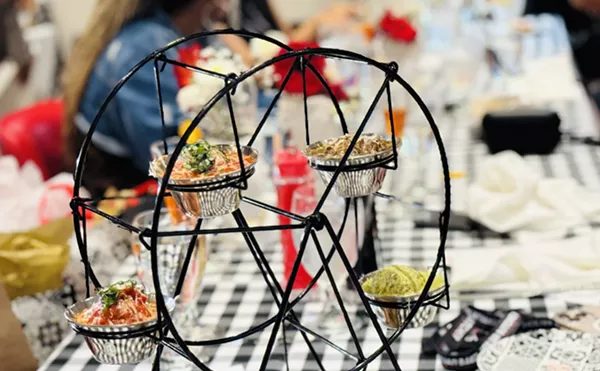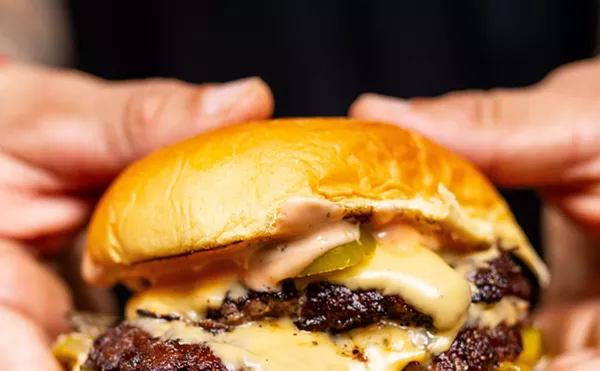Upon entering the restaurant, diners see a small lobby bar and izakaya, a host stand and a doorway that leads to a shotgun room with just 24 seats nestled against a sushi bar. Come on a busy night — or just about any night, really — and you may find yourself waiting for a seat, but turnover is quick and the lobby izakaya serves up sake and snacks like takoyaki (octopus dumplings, $8) and chicken karaage ($8). If your wait seems insurmountable, the host will take your phone number and you can pop next door to Hide for cocktails while you wait for seats.
But once you get through the door, you're greeted with a minimalist room with New York sushi bar vibes. Once you're seated, you'll be guided through the hand roll experience by the person making your food, which creates a more intimate experience between you and the rolls you're about to inhale.

Nori's hand rolls come out one by one, and while they look simple, there's big flavor here.
Beth Rankin
"Most sushi places bring you all the food at once," says Mark Lee, co-owner of Nori. "You’re not consuming it really fast — it’s probably sitting there 10 minutes or longer. We bring out each order individually because you want to eat it when it’s really fresh."
At Nori, the best way to dine is by putting your fate in your server's hands. You can order rolls a la carte, but it's smarter to go with one of the prix fixe options: I Could Eat (three hand rolls for $16), Hungry (four for $21), Starving (five for $26) or Hangry (six for $31). On a recent visit, my dining partner and I split a couple appetizers and the Hangry option, which meant we each got half of the six rolls served. It doesn't sound like much, but hand rolls are sizeable enough that we were plenty full by the time we finished.
"I will always steer (diners) to get a prix fixe," says Executive Chef Jimmy Park. "The reason why that is, is because you’re getting the majority of the main (rolls) all in one, and it’s also discounted."
The Hangry option runs the hand roll gamut: king salmon from New Zealand, lobster, toro from Spain, negihama, scallop and red crab. Each roll comes out separately, and you're encouraged to eat it quickly before the high-end nori (the seaweed that holds it all together) loses its crunch. By the time you're finished opining about those delicious bites, the next roll is set in front of you.
By keeping it simple, without the obnoxious trappings of American sushi rolls, you can taste every component: the high-quality fish, the perfectly cooked rice, the salty crunch of the nori. Each bite is beautiful, simple, fresh, and it all pairs beautifully with the house hot sake ($6 for 4.5 ounces, $10 for 9 ounces). The drink menu, too, is simple, with Japanese beers and a page of sake options, all of which are served cold, save for the house sake.

Izakaya appetizers are a nice way to start the meal. Pictured here: takoyaki, aka octopus dumplings (left), and chicken karaage (Japanese fried chicken).
Beth Rankin
Lee admits that Nori's small, focused approach does mean diners can sometimes wait up to two and a half hours on busy nights, but they're working on the turnover rate (as of right now, the restaurant doesn't take reservations) and recently added a lunch service that diners haven't caught on to yet, so it's the perfect time to give these hand rolls a try.
By the time you finish your meal and wander back out onto the loud, busy streets of Deep Ellum, you can't help but feel as if you were just transported somewhere else entirely — and you might find yourself already booking a return visit.
Nori Handroll Bar, 2814 Elm St. (Deep Ellum)














